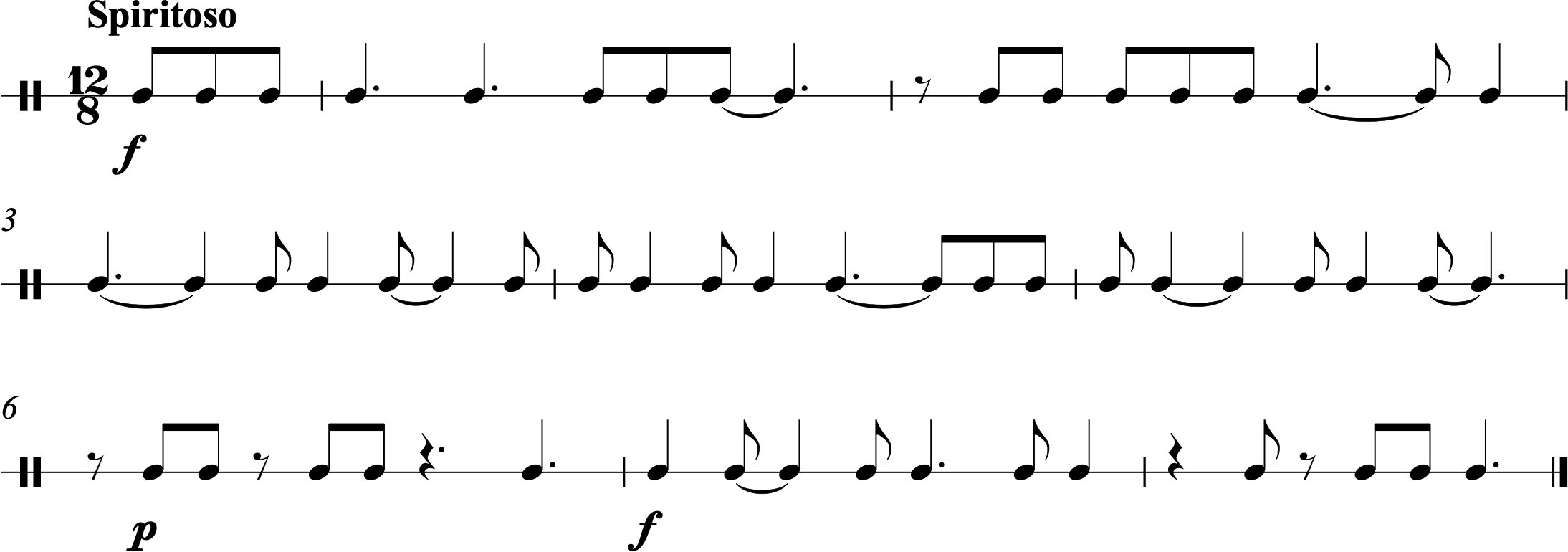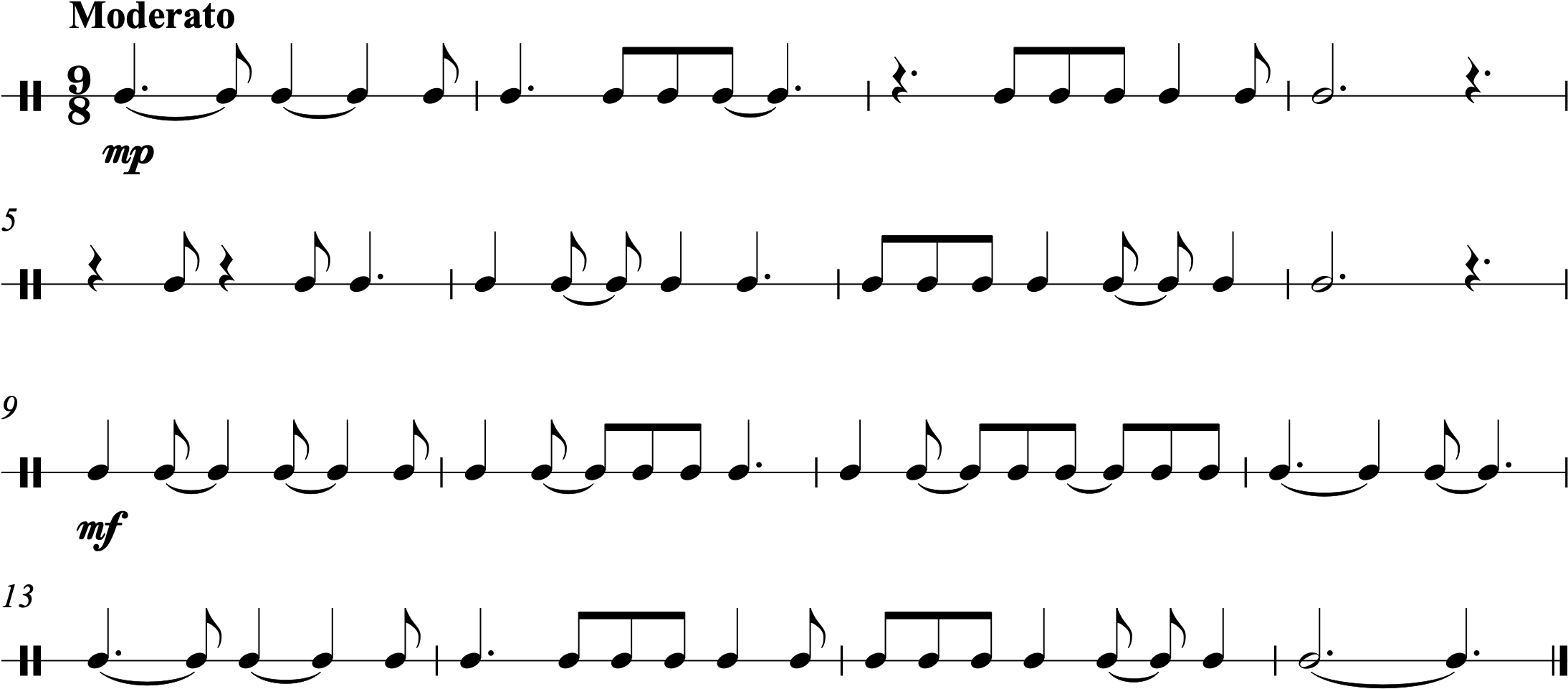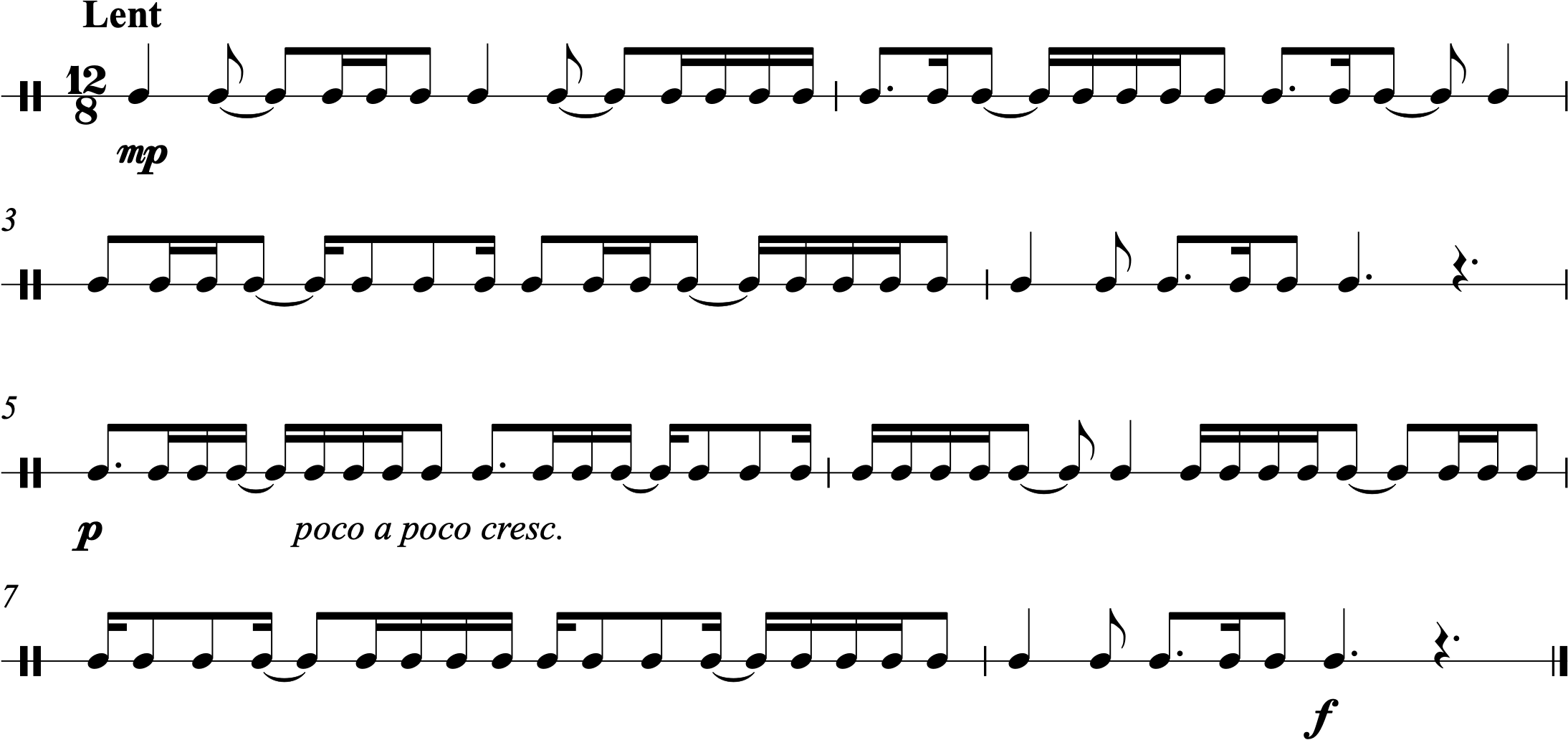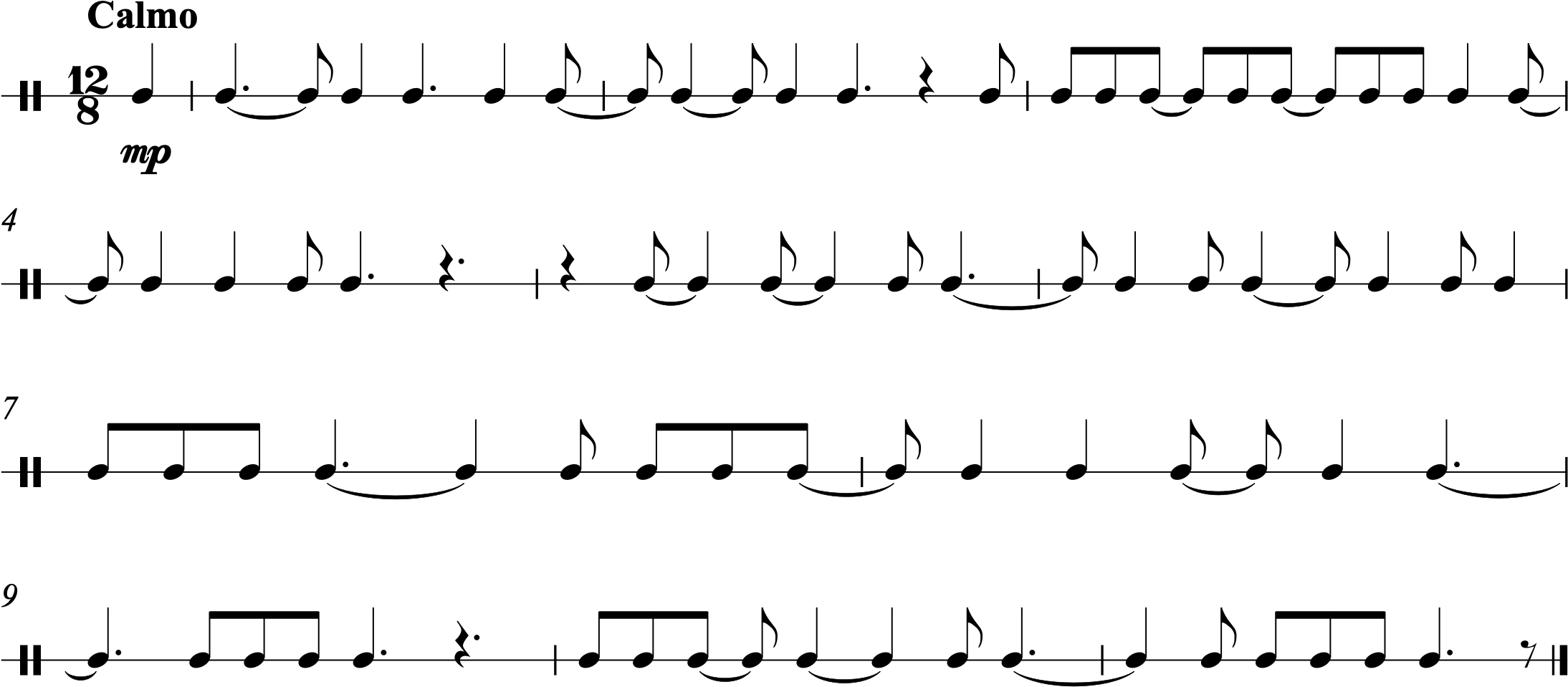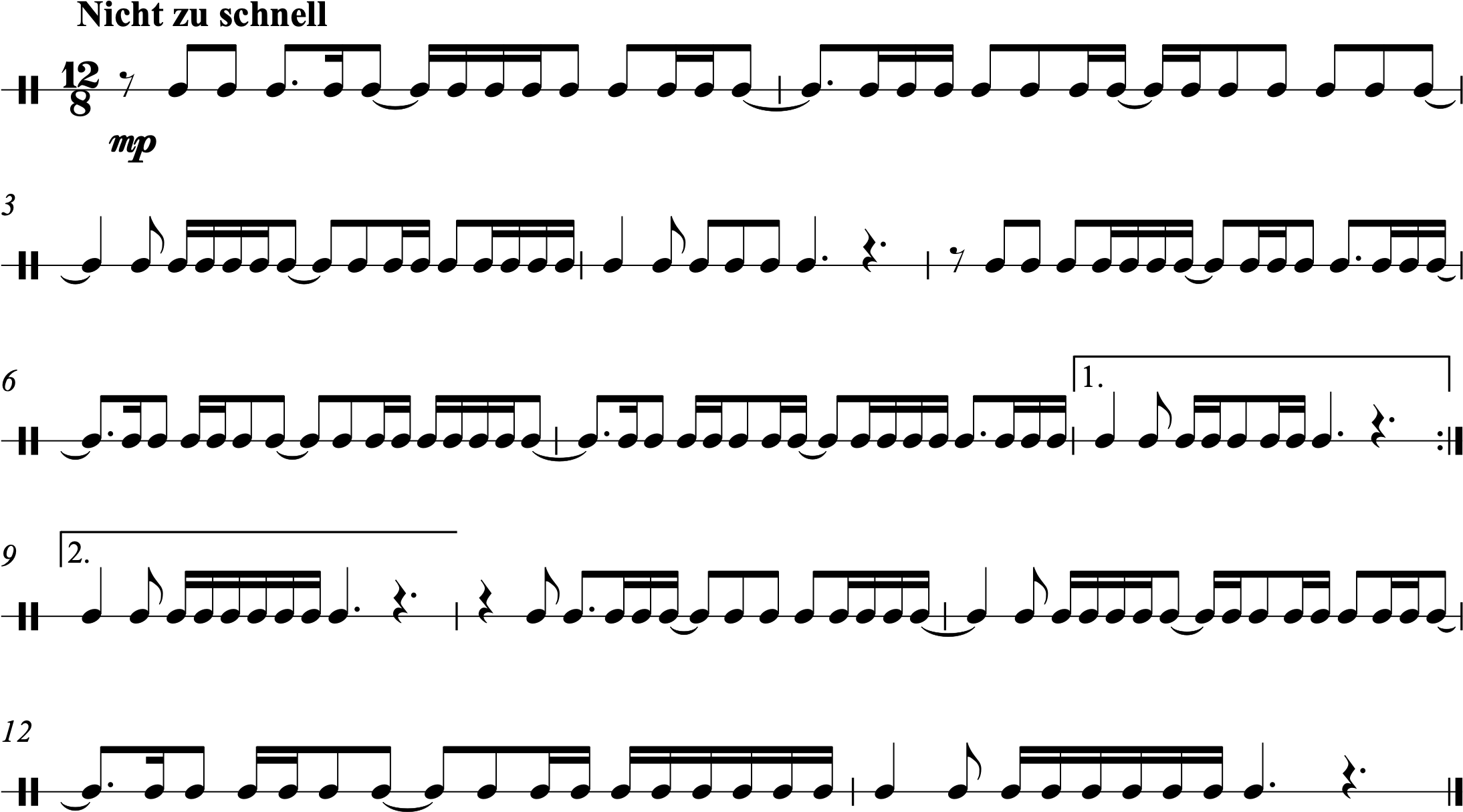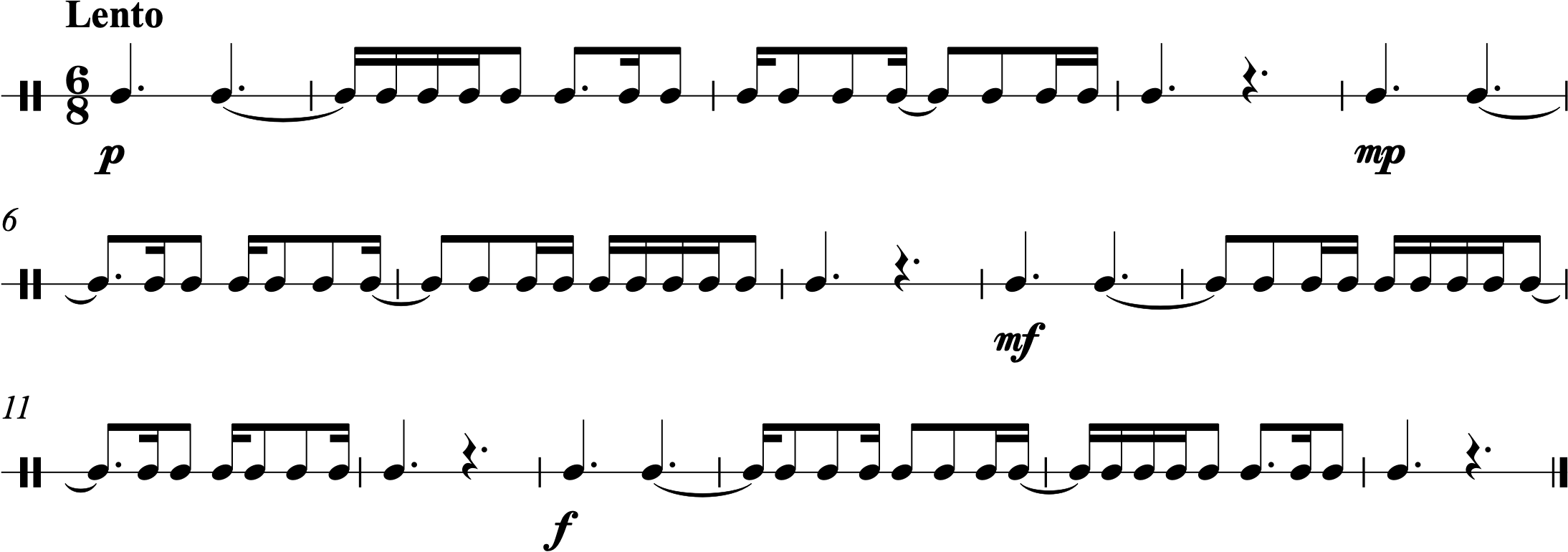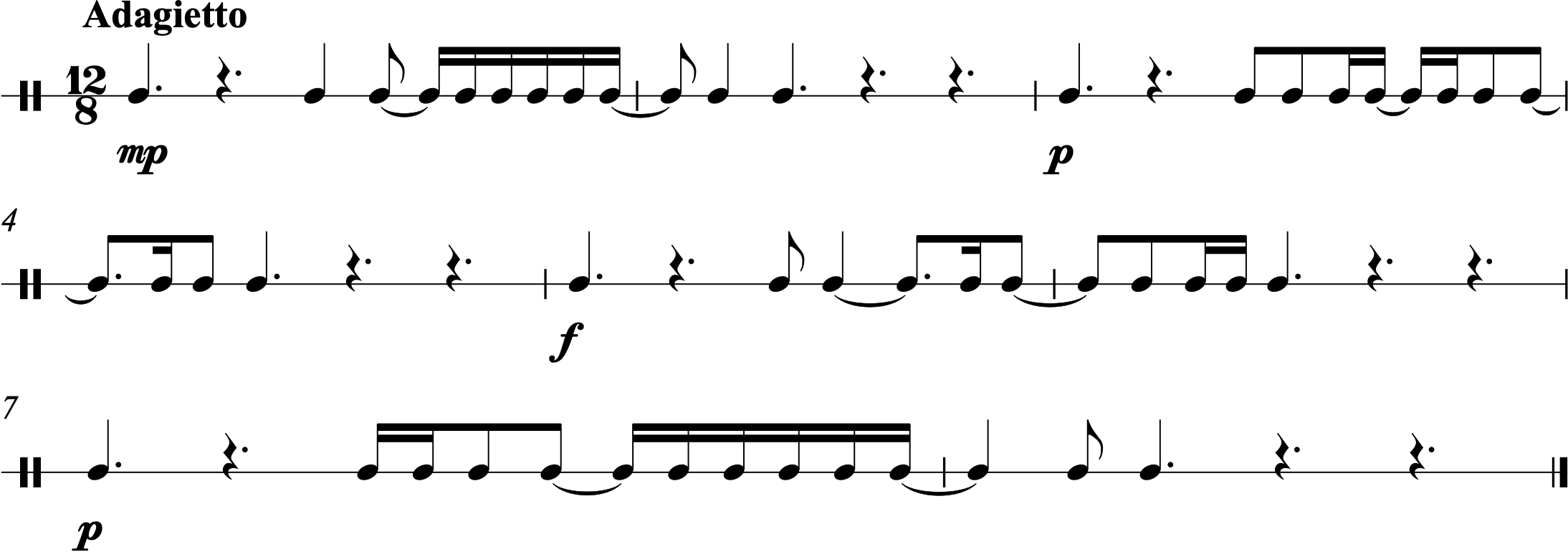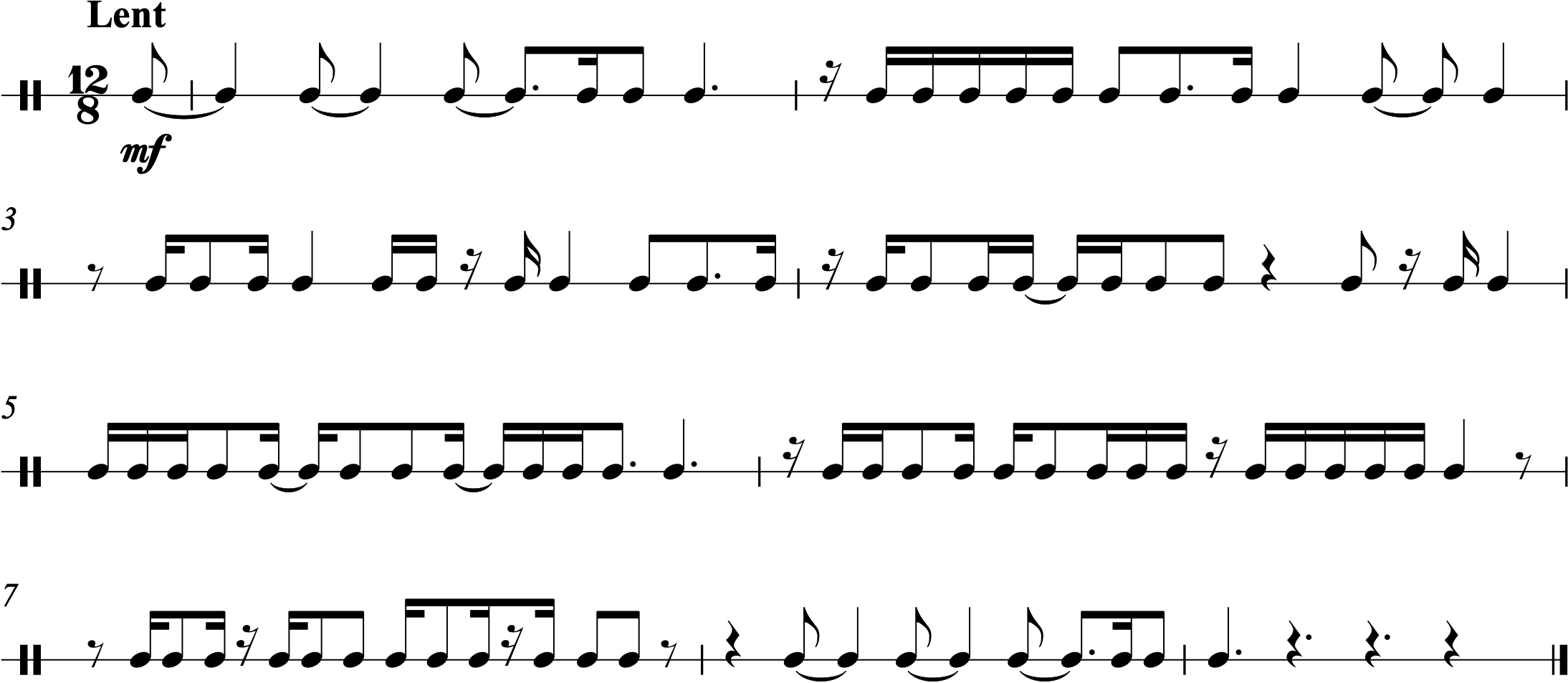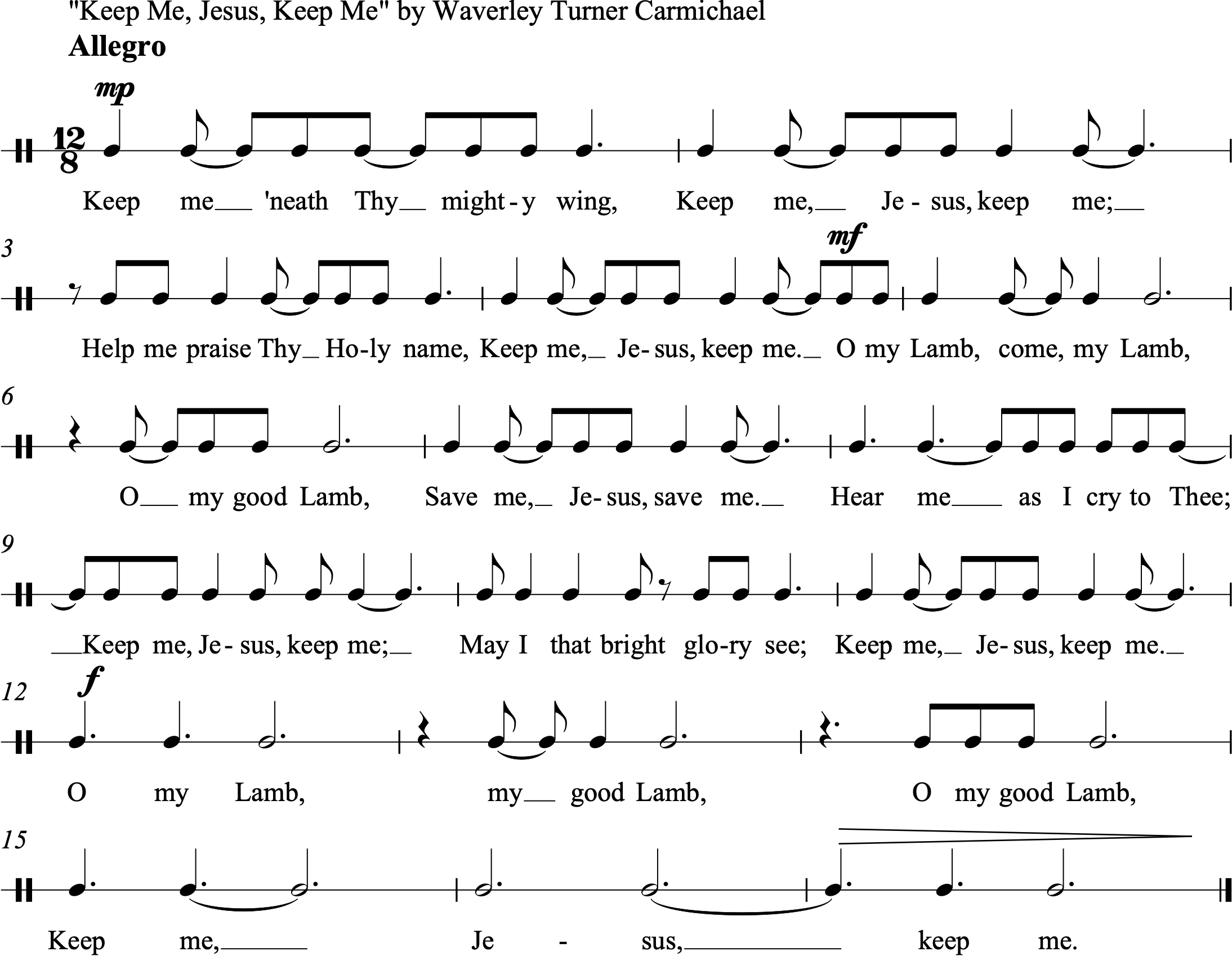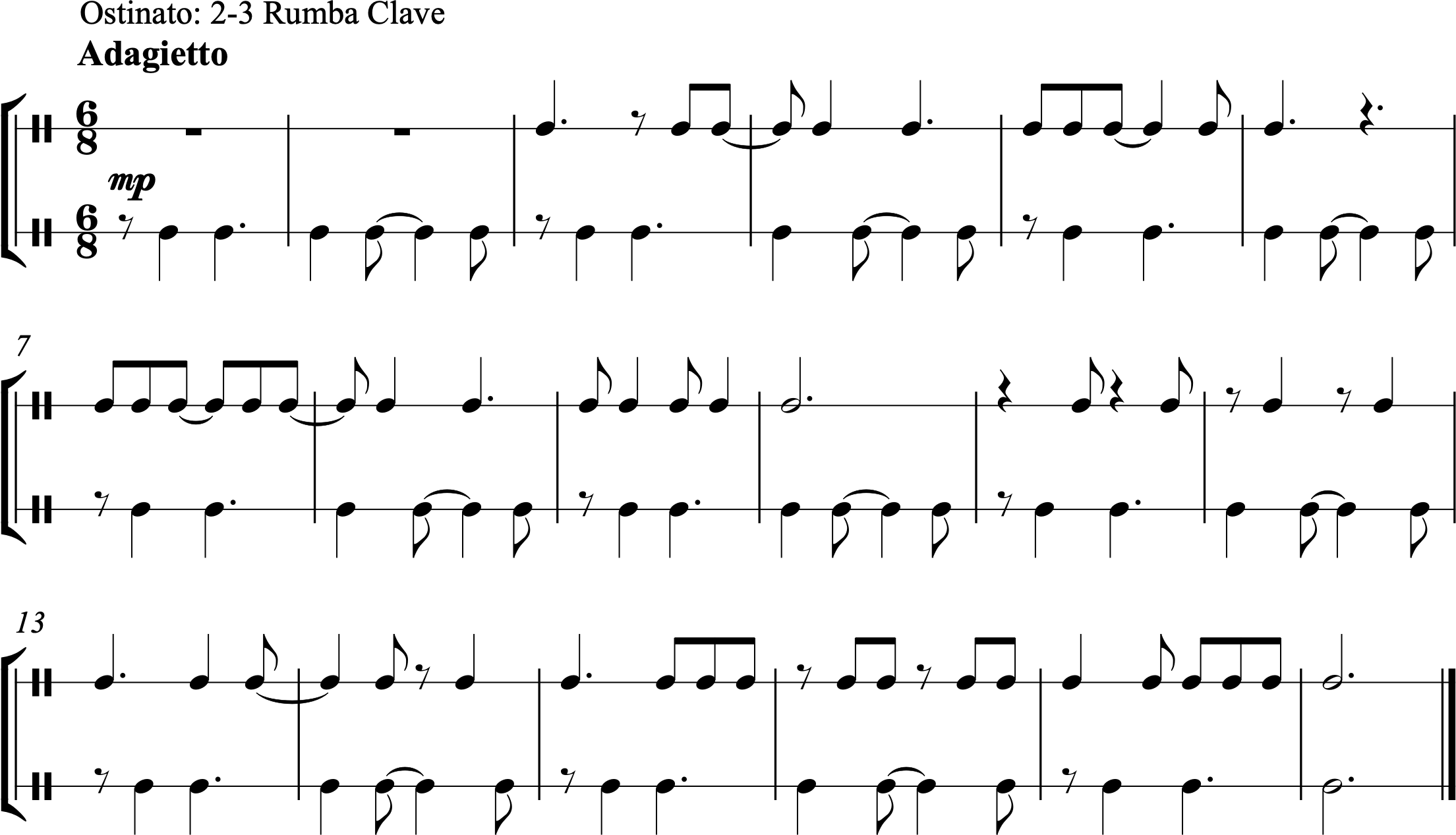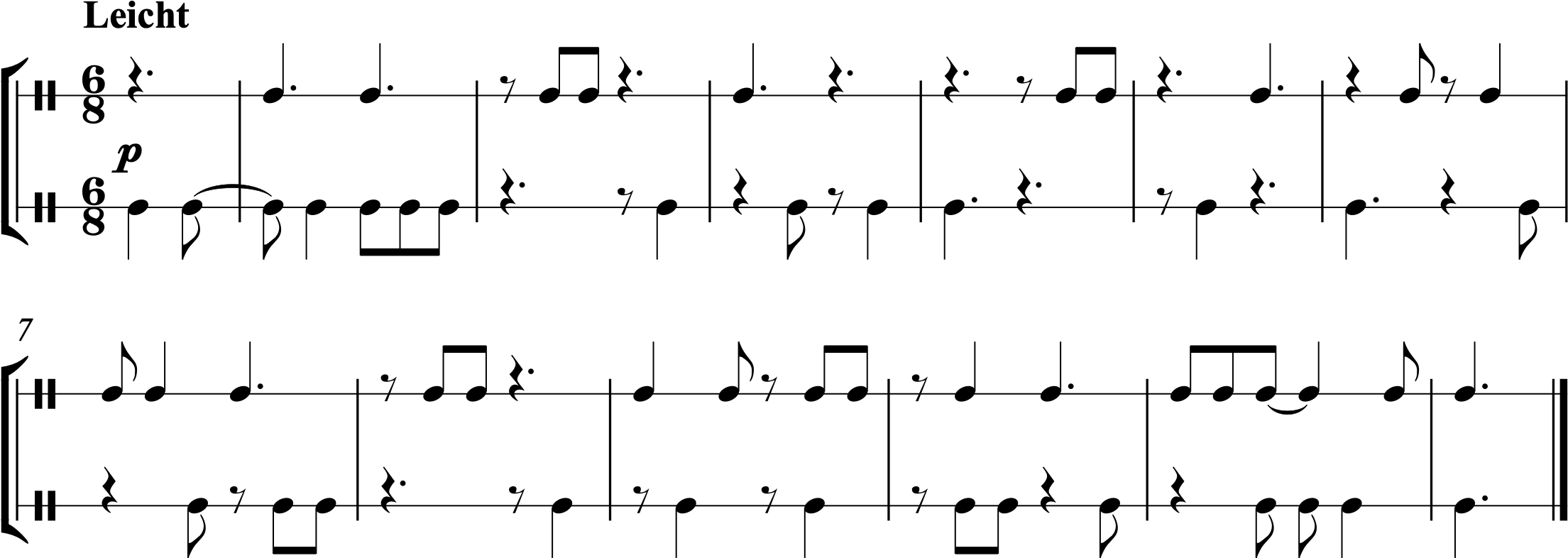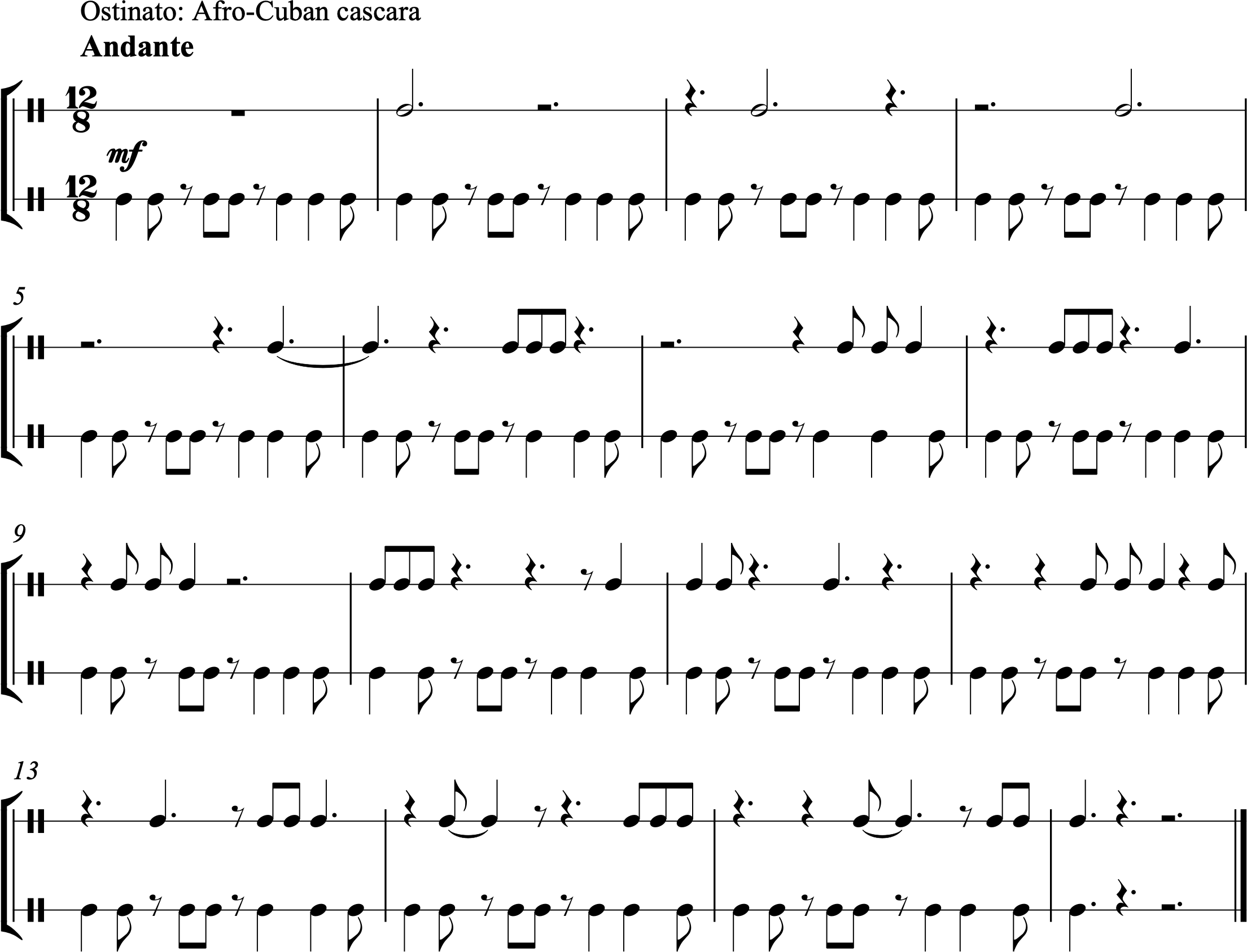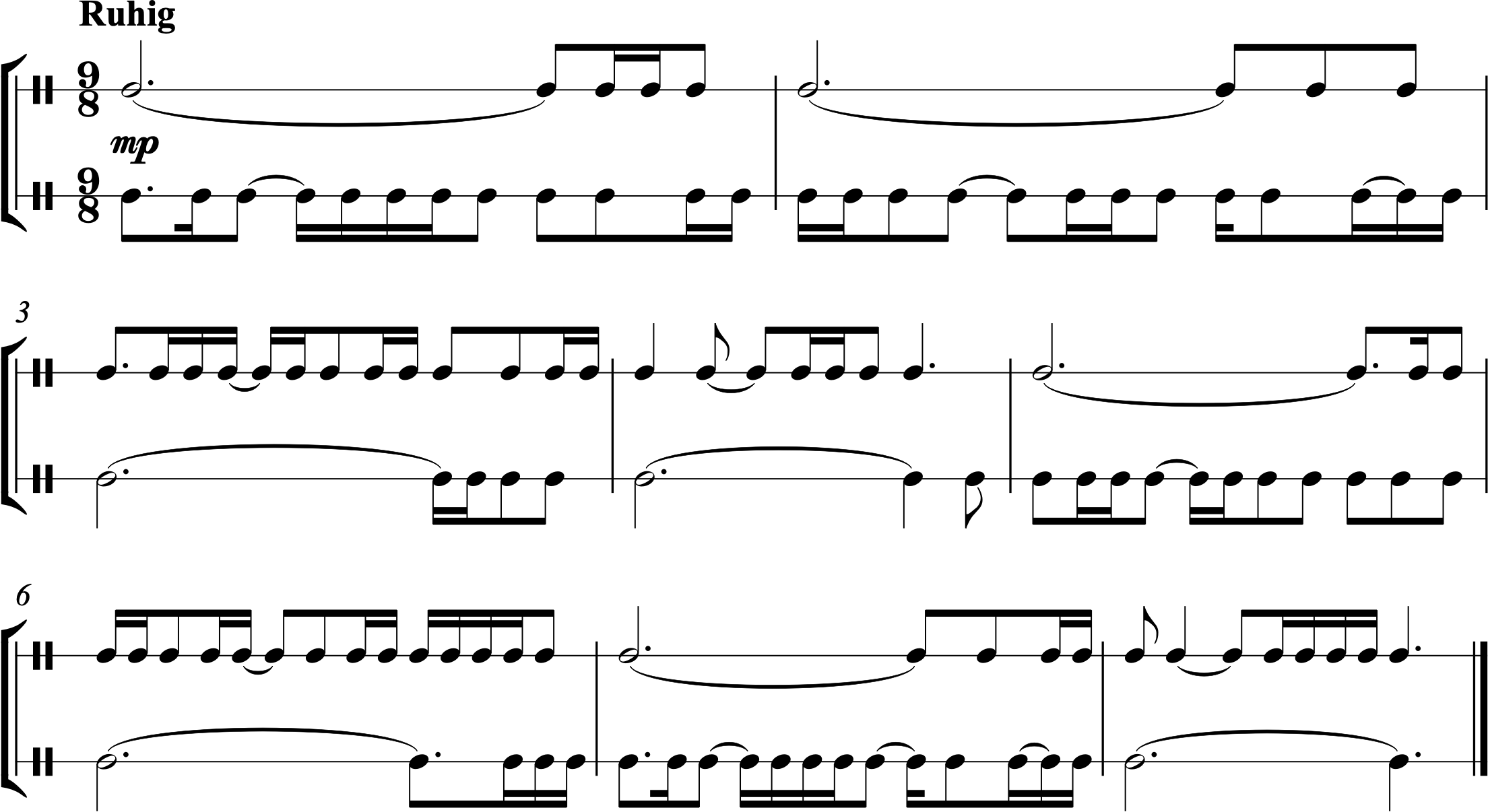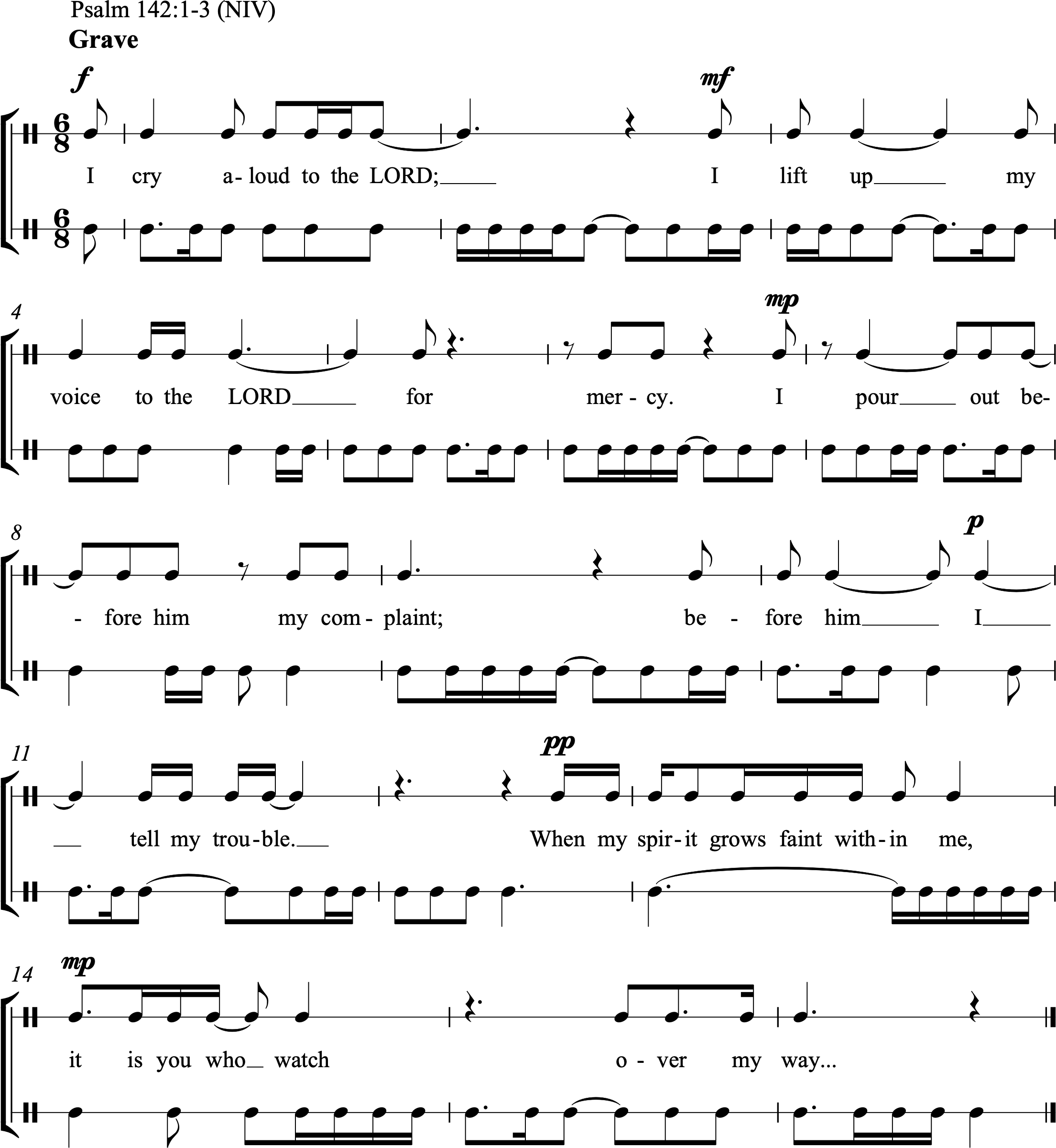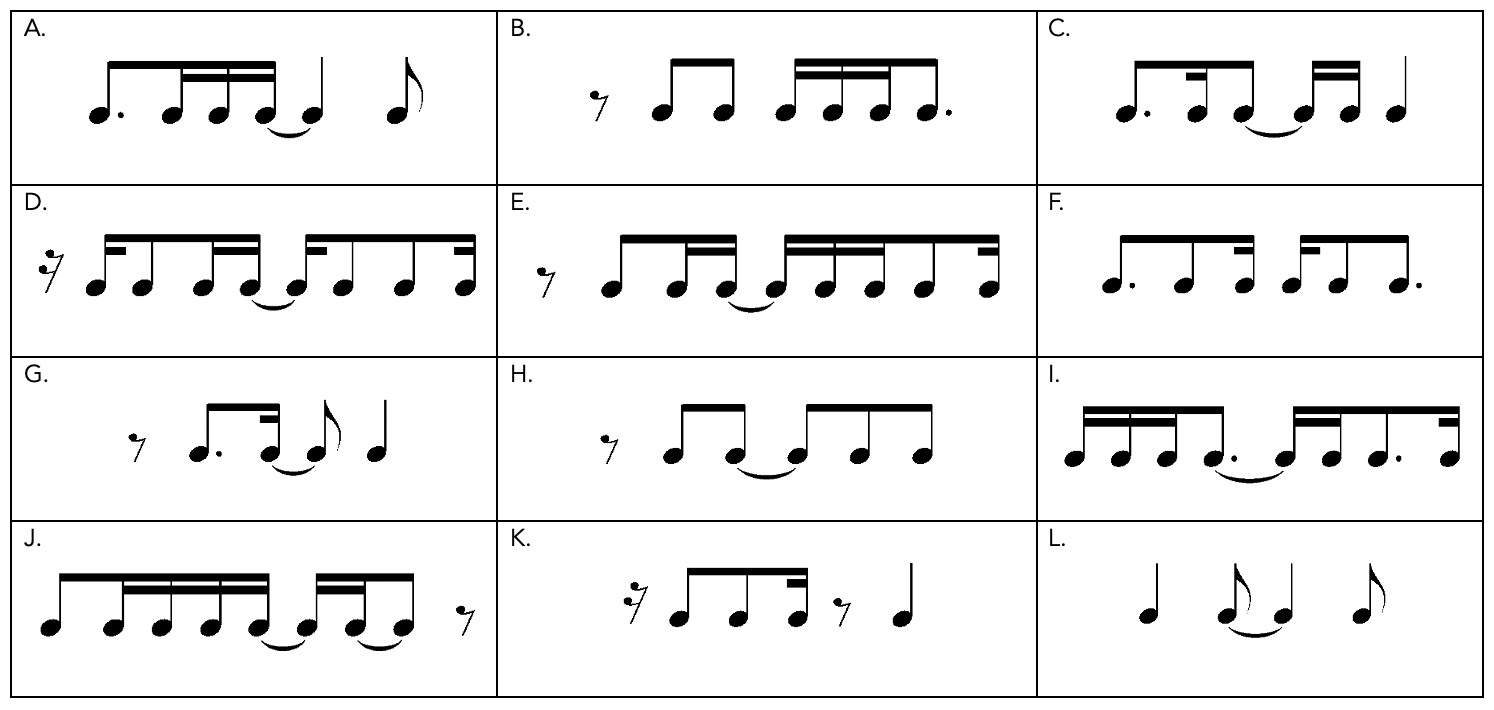Chapter 9: Compound Meter—syncopation
About This Chapter
About This Chapter: In Chapter 8, we explored syncopated rhythms in simple meters. In this chapter, we turn our attention to syncopated rhythms in compound meters. The concept is the same: a weak part of the measure is accented. In measures 1–2 of the example below, the “li” of the measure is accented instead of the beats. In measure 3, the emphasis of “ta” instead of “la” and “li” creates a syncopation at the division level.
Section A—Syncopation that obscures internal beats
Practice
Practice A:
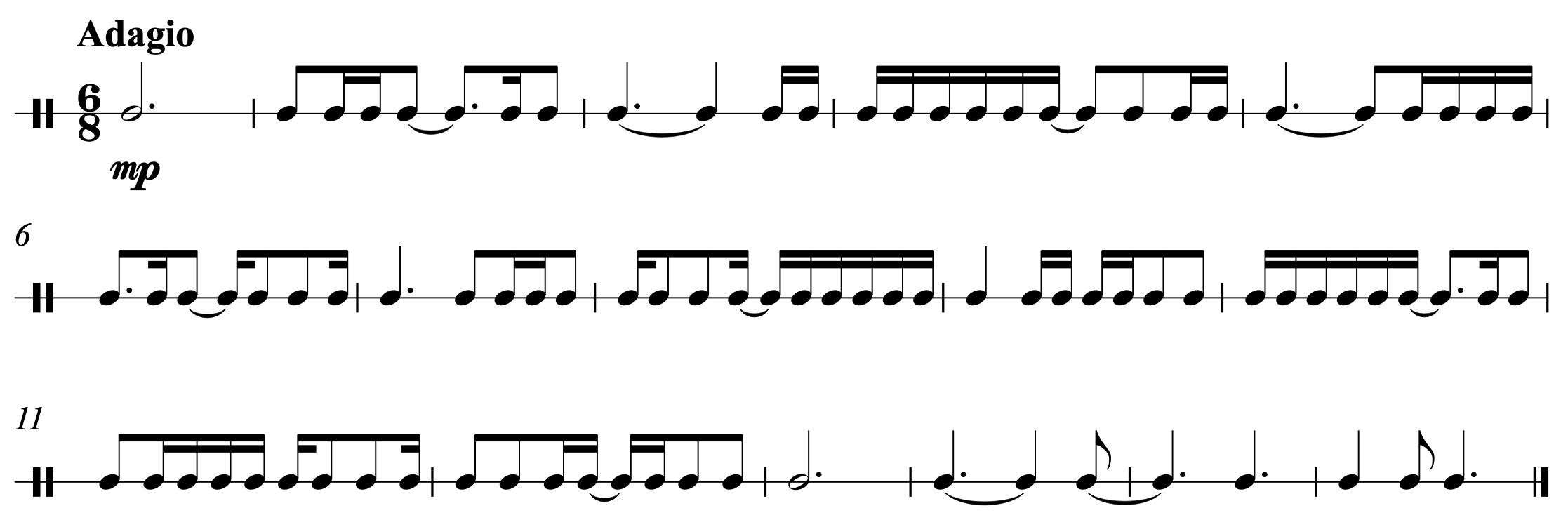 Practice by performing along with this audio file, which features a metronome click and the notated rhythm. You will hear two measures of wood block to establish the tempo before the exercise begins.
Practice by performing along with this audio file, which features a metronome click and the notated rhythm. You will hear two measures of wood block to establish the tempo before the exercise begins.
Next, try performing along with this audio file, which features the notated rhythm but no metronome click. You will hear two measures of wood block to establish the tempo before the exercise begins.
1.
2.
3.
4.
5.
6.
7.
8.
9.
10.
Section B—Syncopation that obscures downbeats
Practice
Practice B:
 Practice by performing along with this audio file, which features a metronome click and the notated rhythm. You will hear one full measure of wood block to establish the tempo before the exercise begins.
Practice by performing along with this audio file, which features a metronome click and the notated rhythm. You will hear one full measure of wood block to establish the tempo before the exercise begins.
Next, try performing along with this audio file, which features the notated rhythm but no metronome click. You will hear one full measure of wood block to establish the tempo before the exercise begins.
11.
12.
13.
14.
15.
16.
17.
18.
19.
20.
21.
22.
23.
24.
Section C—Two-part rhythms featuring syncopation
25.
26.
27.
28.
29.
30.
31.
32.
33.
34.
35.
Rhythmic Cells
- For general suggestions on how to use these rhythmic cells, see Appendix: How to Use Rhythmic Cells.
- Each cell contains a complete measure of 6/8. Syncopation is prominently featured in many of the cells, but you could add even more by adding a tie from the end of one cell to the next.
Rhythm in Context
Rhythm in Context example coming soon!
Citations
Poem:
- Waverley Turner Carmichael (1881–1936), “Keep Me, Jesus, Keep Me,” public domain. From From the Heart of a Folk: A Book of Songs, published 1918, by Cornell Press, Boston, MA.
Psalm:
- Scriptures marked “NIV” taken from the Holy Bible, New International VersionTM, NIVTM
- Copyright © 1973, 1978, 1984, 2011 by Biblica, Inc. Used with permission. All rights reserved worldwide. The “New International Version” is a trademark registered in the European Union Intellectual Property Office (EUIPO) and United States Patent and Trademark Office by Biblica, Inc. The “NIV”, “Biblica”, “International Bible Society” and the Biblica Logo are trademarks registered in the United States Patent and Trademark Office by Biblica, Inc. Used with permission.
Rhythm in Context:



